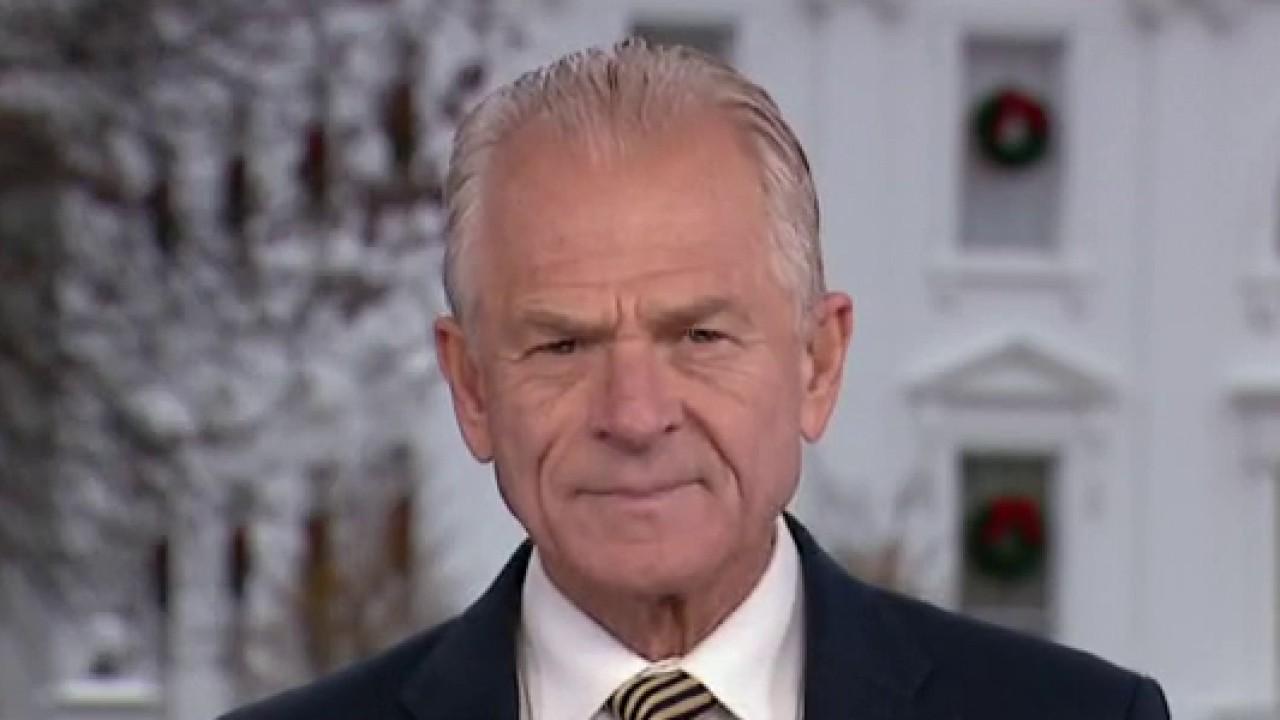Bipartisan coronavirus relief deal to boost weekly jobless aid by $300, but won't include stimulus check
$908B coronavirus relief deal expected to be added to spending bill
Bipartisan lawmakers are set to unveil more details on a proposed coronavirus relief bill Tuesday as they look to break a months-long stalemate over another round of emergency aid in the few days Congress has left to act.
The $908 billion proposal will likely be attached to the larger omnibus spending bill needed to avert a government shutdown on Dec. 11.
Pelosi and Senate Minority Leader Chuck Schumer, D-N.Y., endorsed the narrower deal last week —a stark reversal from previous months when they maintained that at least $2.2 trillion is needed in new spending — spurring hope that lawmakers would be able to strike a deal before the end of the month.
President Trump and Senate Majority Leader Mitch McConnell, R-Ky., are also expected to back the bill, Sen. Bill Cassidy, R-La., said during an interview on "Fox News Sunday."
12 MILLION AMERICANS FACE LOSS OF UNEMPLOYMENT BENEFITS DAY AFTER CHRISTMAS
“President Trump has indicated that he would sign a $908 billion package — there’s only one $908 billion package out there and it’s ours,” said Cassidy, who helped design the framework. “The pain of the American people is driving this, and I’m optimistic that both those leaders will come on board.”
The bipartisan proposal, which has also been endorsed by the House Problem Solvers Caucus, allocates about $300 billion in funding for small businesses through the Paycheck Protection Program, $240 billion in aid for state and local governments, $180 billion to extend boosted unemployment benefits at $300 per week through March and a temporary moratorium on COVID liability lawsuits to allow states enough time to design their own laws.
It would also funnel $16 billion into vaccine distribution, testing and contact tracing, put $82 billion into education, and give $45 billion for transportation.
Renewed relief talks come at an increasingly perilous time for the nation as it teeters on the brink of another economic downturn. COVID-19 cases are surging, job growth is slowing, state and local governments are implementing more restriction measures and key lifelines that propped up the economy in the early days of the pandemic are poised to expire at the end of the year. One estimate found that at least 12 million laid-off workers will be left without an income the day after Christmas when two federal jobless aid programs established the March CARES Act expire.
Still, the deal, which notably does not include a second stimulus check, faces some hurdles.
Sen. Bernie Sanders, I-Vt., said last week that unless the proposal sent a fresh round of direct cash payments to American families and if it included liability protection for corporations, he would not support it.
“We have got to make sure that every working class American receives at least $1,200 in direct payments and that we do not provide a liability shield to corporations who break the law," Sanders said in a statement. “I look forward to working with my colleagues in the House and Senate to significantly improve this bill. But, in its current form, I cannot support it.”
Rep. Alexandria Ocasio-Cortez, D-N.Y., echoed that sentiment and said the legislation needs to include another stimulus check and expanded unemployment benefits.
PELOSI, SCHUMER URGE MCCONNELL TO RESTART CORONAVIRUS RELIEF TALKS
"COVID relief needs to directly help everyday people," she tweeted. "People need stimulus checks & UI."
President-elect Joe Biden, who's also backing the $908 billion deal, expressed hope that a second check may be included after weekend negotiations. But he said the deal is "immediately needed" and argued that additional assistance could come next year once he's sworn in as president.
Sen. Dick Durbin, the second-ranking Democrat, suggested that excluding the direct payments, while guaranteeing small-business aid and protections for renters, was the only way to reach an agreement with Republicans.
“The $1,200 check, it cost we believe nationally $300 billion to give you an idea,” he said ABC's "This Week." “The Democrats have always wanted a larger number, but we were told we couldn’t get anything through the Republicans, except this $900 billion level.”
GET FOX BUSINESS ON THE GO BY CLICKING HERE




















